From the Classroom

When Fourth Graders Discover Economics Isn't Neutral
"But if sharecroppers are trapped in debt, why don't they just quit and get a different job?" Marcus's question revealed a critical gap in understanding. The briefing explained sharecropping created debt, but fourth graders didn't grasp why debt bondage made leaving impossible—until we explored economic systems that look fair on paper but trap people in poverty.

When Fourth Graders Become Florida's First Peoples (And Discover What "Thanksgiving" Really Meant)
Day 3 of our First Peoples simulation: My students face a summer drought while managing tribal resources. Watch how fourth graders learn the real meaning of gratitude when survival depends on strategic planning, adaptation, and careful decision-making in pre-contact Florida.

When Fourth Graders Debate Florida's Right to Vote
"The Speaker of the House recognizes Representative Jayden." The nine-year-old stands, clutching his handwritten bill. "My bill says that U.S. soldiers must guard every polling place in Florida during elections." The room erupts. This is Day 4 of our Reconstruction simulation, where 22 fourth graders are discovering that winning a war is actually easier than building a just government afterward.

When Fourth Graders Command the End of the Civil War
Days 10-11 brought the Battle of Natural Bridge, a civilian primary source, and the end of the Confederacy. Fourth graders learned what it means when continued fighting serves no purpose.

When History Doesn't Match the Simulation
What happens when students' dice rolls create different outcomes than history? These moments teach more about contingency and causation than any lecture could.

The Battle of Olustee: When Fourth Graders Command Florida's Largest Civil War Battle
Fourth graders command Florida's largest Civil War battle with full understanding of strategic constraints, supply limitations, and military necessity.

When the Blockade Bites: Our Civil War Simulation Faces Resource Reality
"We can't afford supplies for the battle AND pay for the penalty? Something has to give!" Our fourth graders discover how the Union blockade won the Civil War.
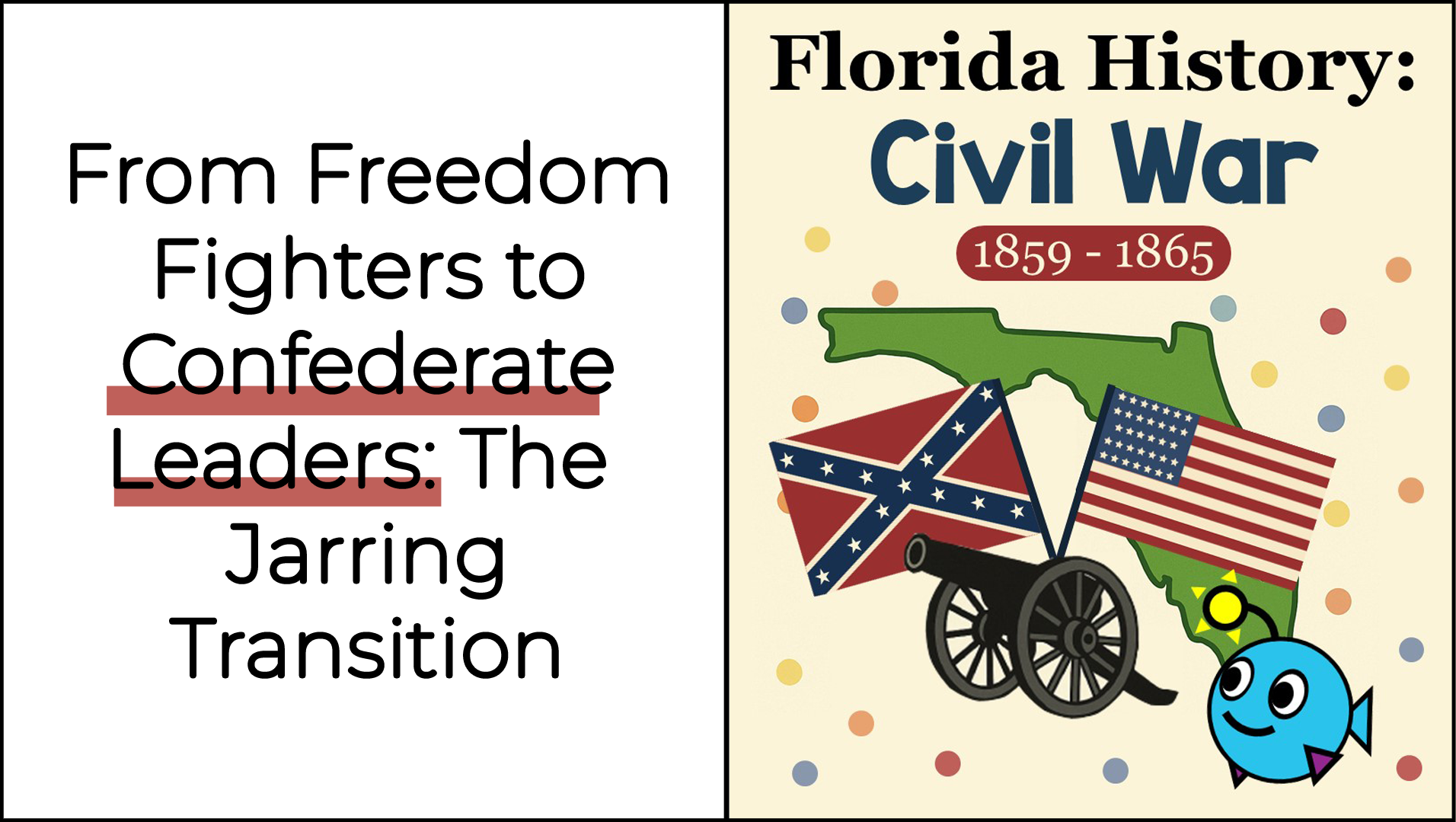
From Frontier Freedom Fighters to Confederate Leaders: The Jarring Transition My Students Never Saw Coming
When my students transitioned from defending Seminole villages in our Frontier Struggles unit to playing Confederate roles in the Civil War simulation, their questions were blunt and uncomfortable: “Wait, we’re the bad guys now?” This jarring shift challenged them to grapple with historical complexity, moral ambiguity, and the skills of analyzing perspectives without applying contemporary judgments.
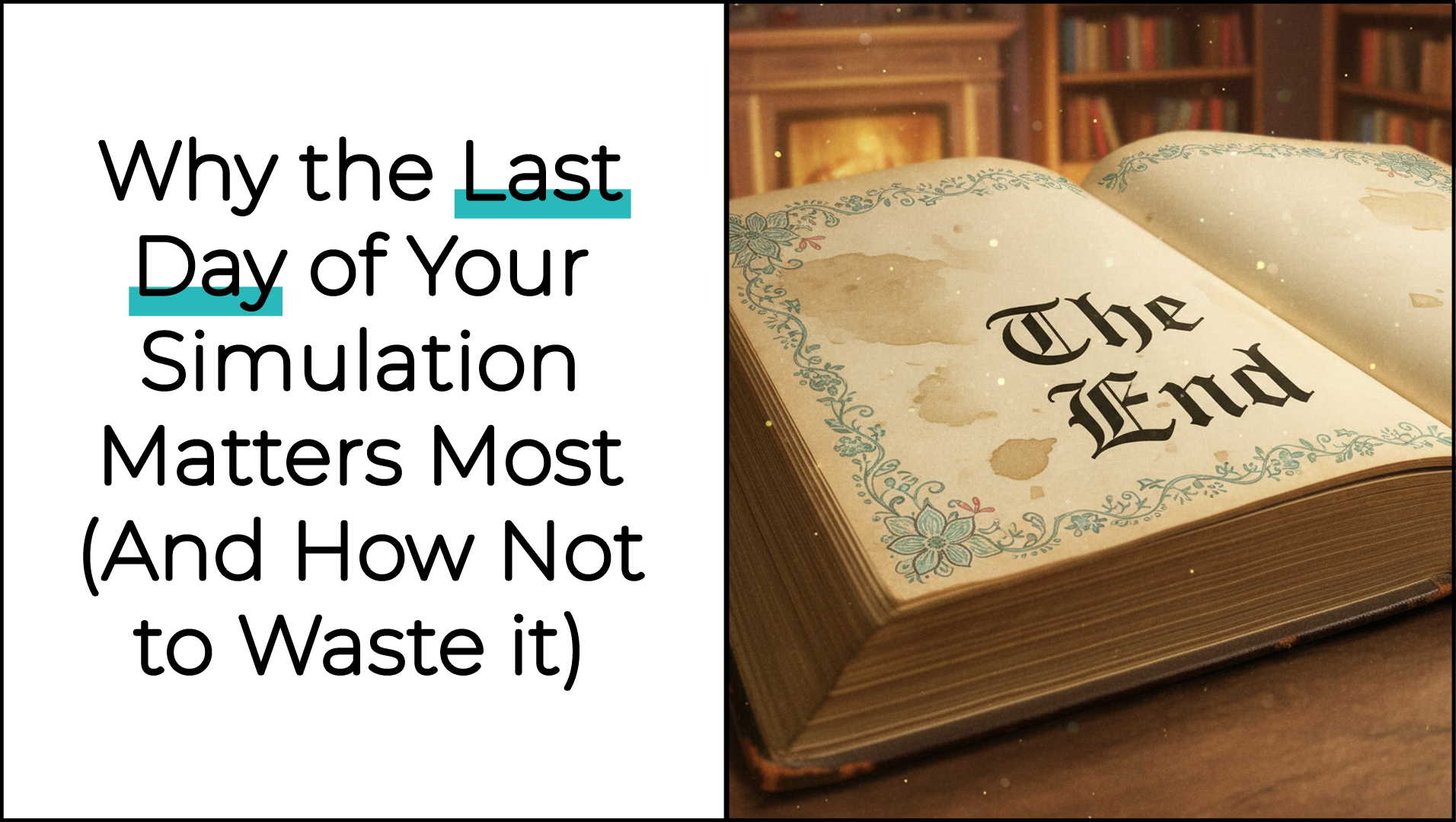
Why the Last Day of Your Simulation Matters Most (And How Not to Waste It)
The last day of a historical simulation is more than just a wrap-up—it’s the moment where learning truly sinks in. If you rush, your students miss the chance to process emotions, connect experiences to historical understanding, and transfer insights beyond the classroom. Here’s how to make your simulation endings count.
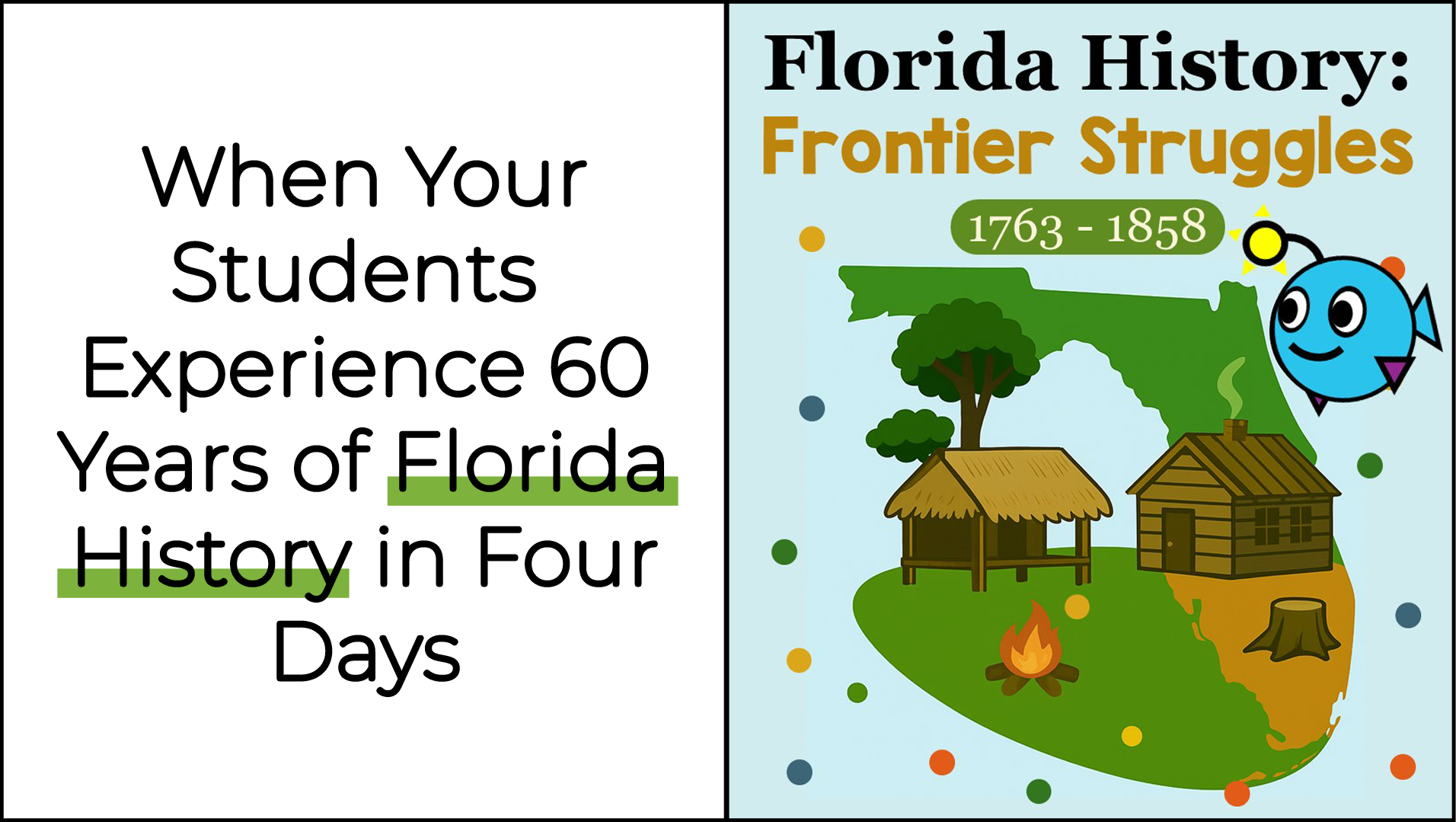
When Your Students Experience 60 Years of Florida History in Four Days
"Mrs. Zema, this is getting really intense." This observation came from Emma, leader of our Seminole group, as we wrapped up Thursday's session on the Adams-Onís Treaty. Over the past week, my fourth graders had lived through 60 years of territorial changes, wars, and competing claims to Florida—and they were feeling the weight of it all. What started as an exciting competition over land had evolved into something much deeper.
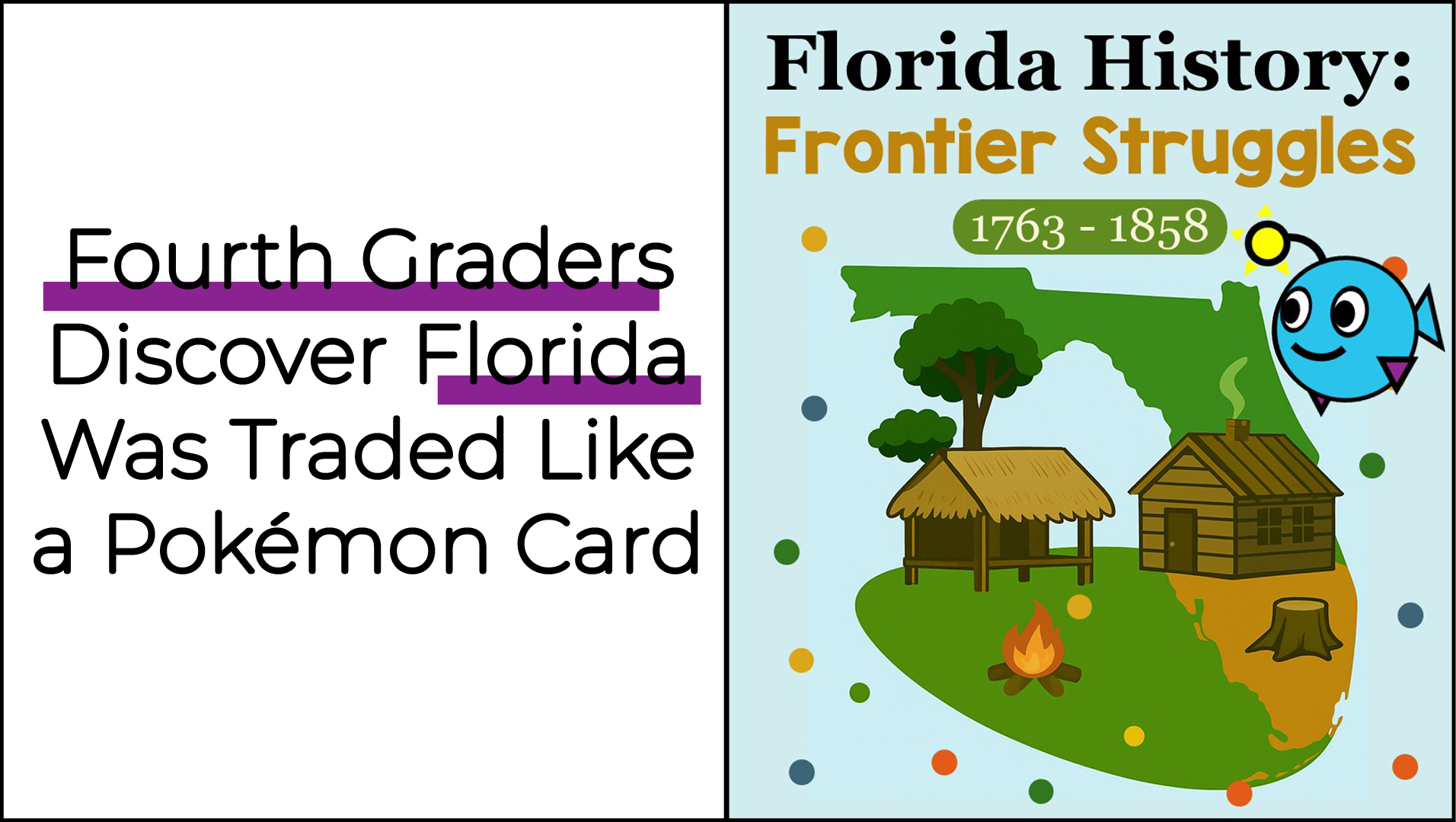
When Fourth Graders Discover Florida Was Traded Like a Pokémon Card
"Wait, WHAT? They just... gave away Florida? Like, the whole thing?" This incredulous question came from Jordan as we examined Treaty of Paris documents. My students had just started the Frontier Struggles simulation, competing for Florida territory. Now they were discovering that while they focused on homesteads and land claims, entire nations had been casually trading Florida back and forth.
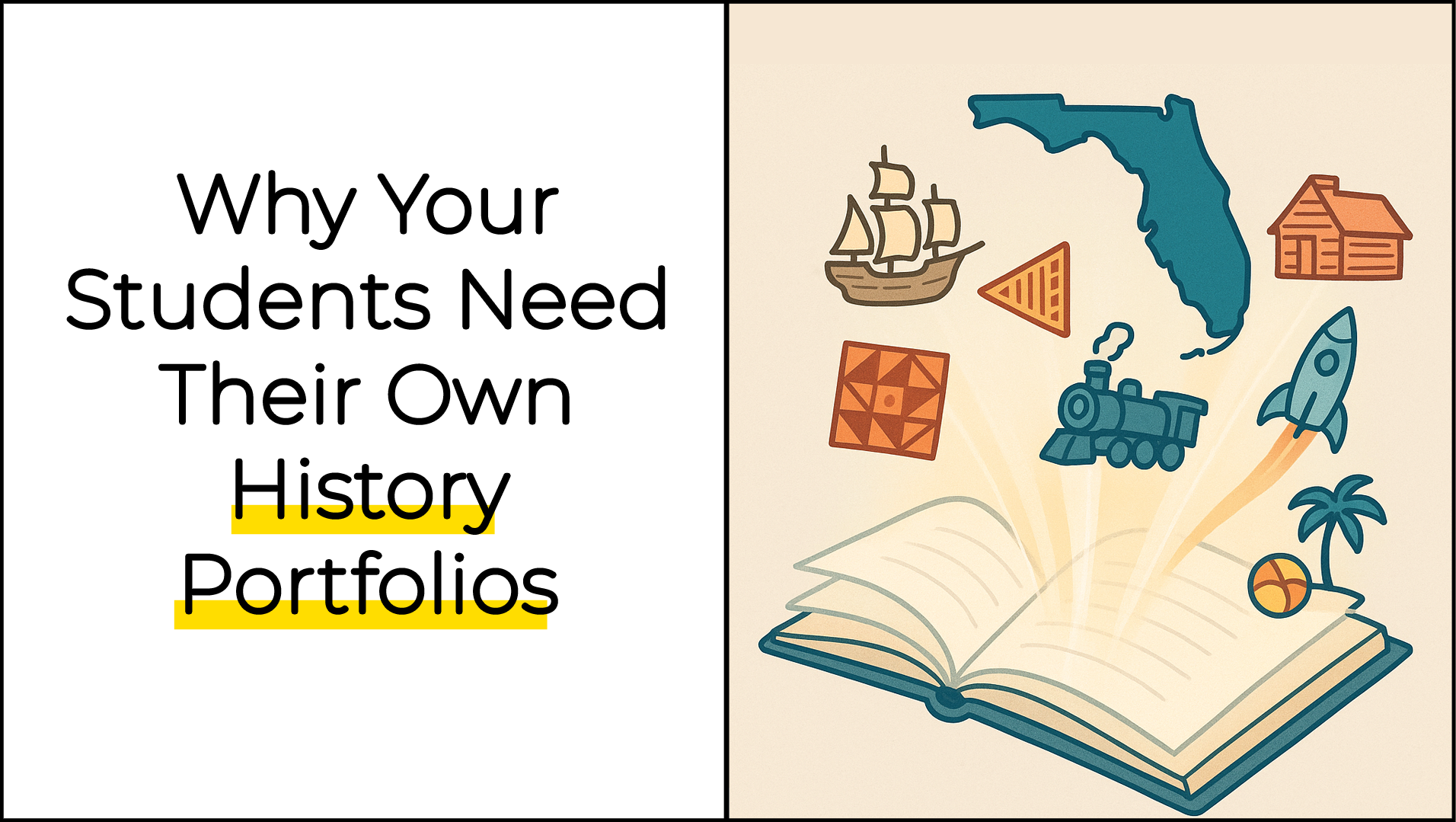
Why Your Students Need Their Own History Portfolio (And How to Make It Happen)
"Mrs. Zema, can I show my mom my timeline?" Marcus was holding his composition notebook, pointing to where he'd documented Pedro Menéndez's landing. That moment reminded me why student learning portfolios aren't just "nice to have"—they're essential for helping students see themselves as historians and learners.
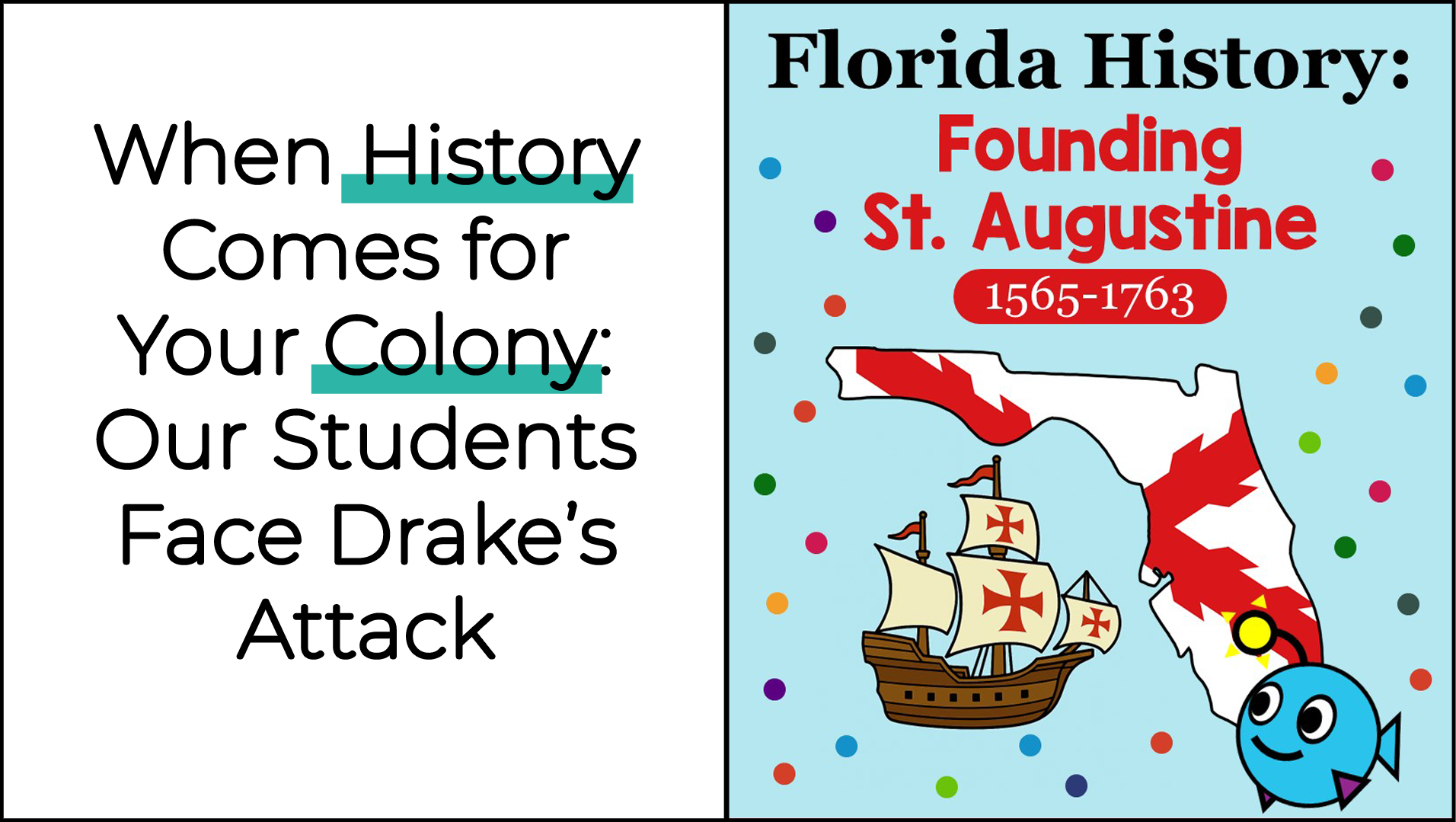
When History Comes for Your Colony: Our Students Face Drake's Attack
"Before dawn, English privateer Sir Francis Drake launches a surprise raid on the settlement. His ships fire from the sea while his men rush ashore. The Spanish scramble to respond. Smoke fills the air." Twenty-two fourth graders held their breath as I read the event card that would determine their colony's fate. After a week of hurricanes, policy changes, and tough decisions, this was their biggest test yet.
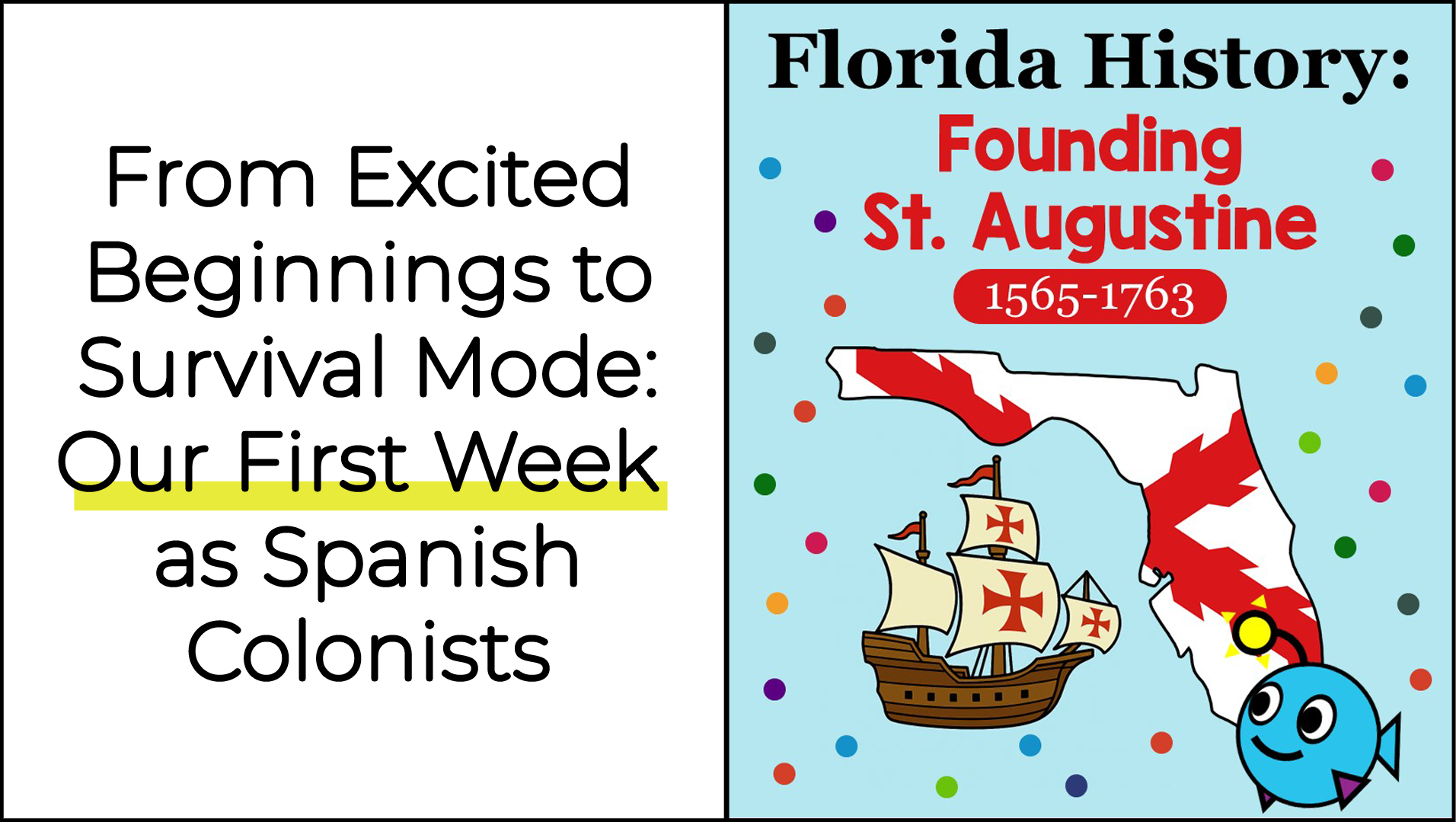
From Excited Beginnings to Survival Mode: Our First Week as Spanish Colonists
"Mrs. Zema, are we going to die?" This question came from Riley after five days of our Founding St. Augustine simulation. What started with excitement about "getting to be Spanish leaders" had transformed into genuine concern for their colony's survival. Here's how my fourth graders learned that good intentions aren't enough when facing real historical challenges.
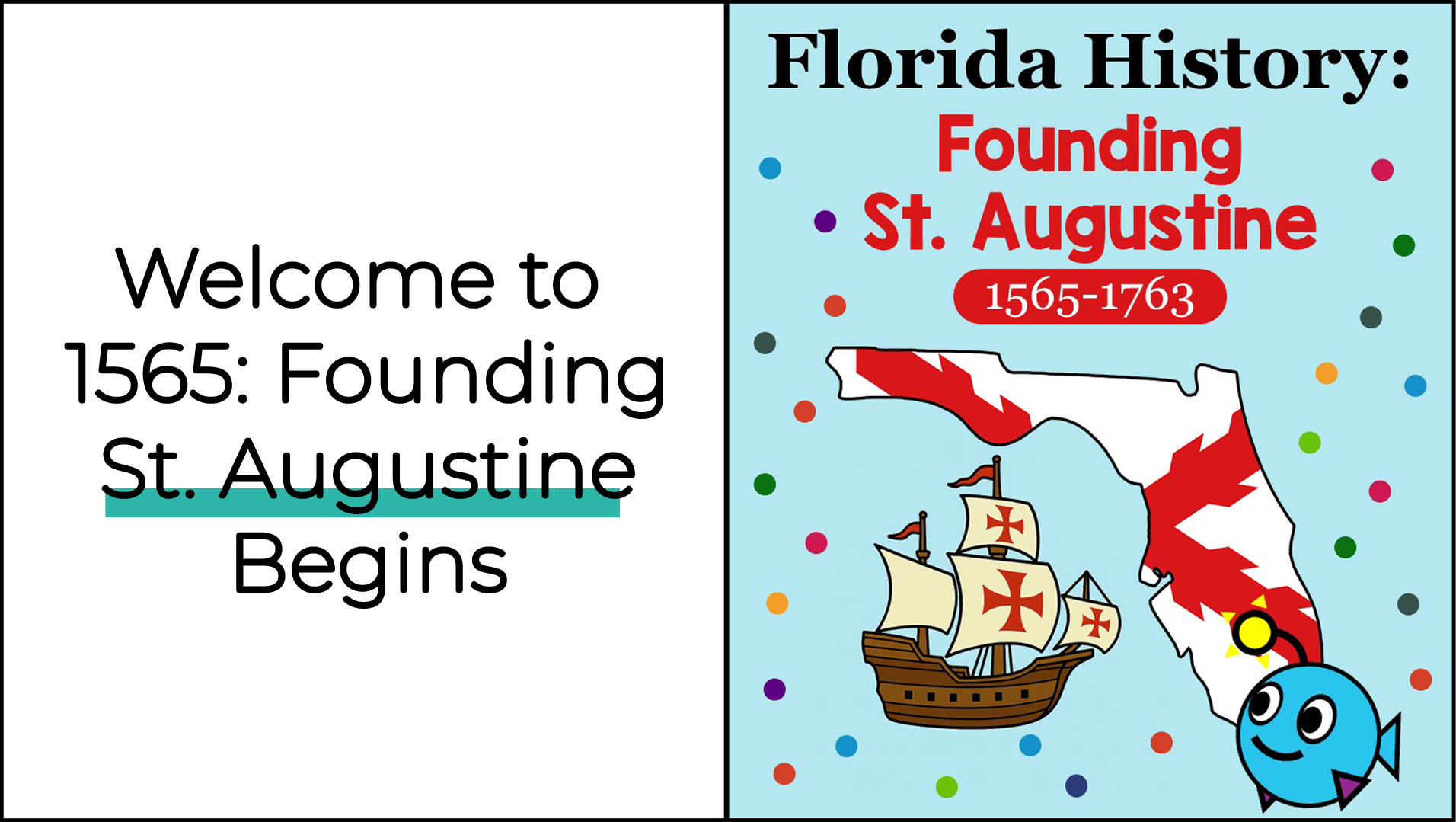
Welcome to 1565 - Founding St. Augustine Begins
"Buenos días, Spanish leaders! Welcome to the year 1565." Twenty-two fourth graders looked around our classroom with curiosity as we began our journey into America's oldest city. Today marked the official start of our Founding St. Augustine simulation—and the mixed reactions were priceless.

Florida History Gets an Upgrade
Three years ago, I was drowning in Studies Weekly newspapers. You know the ones—those thin, social studies "newspapers" that somehow managed to make Florida's incredible history feel as exciting as reading a phone book. There had to be a better way, and I found it.
